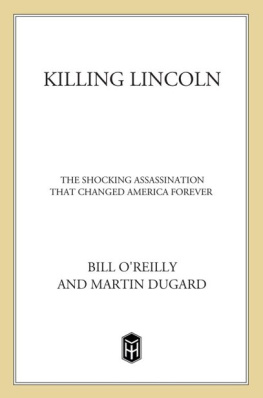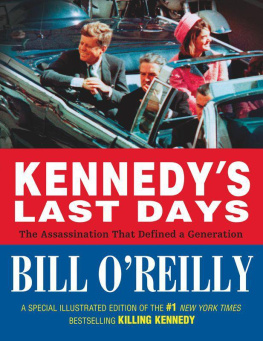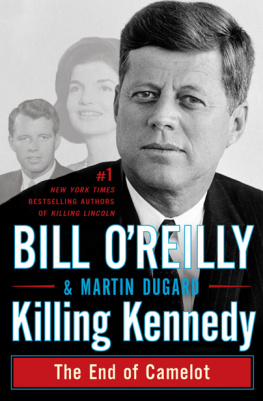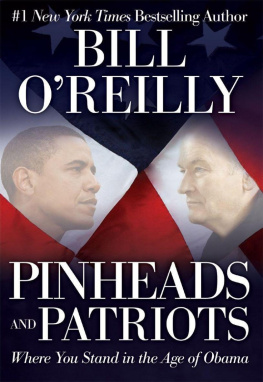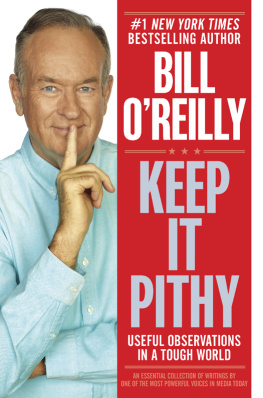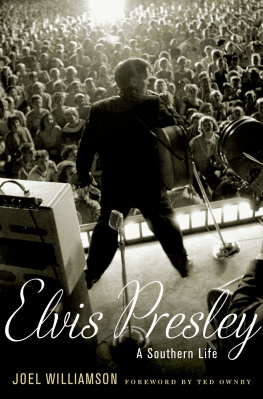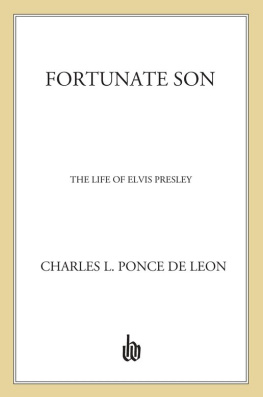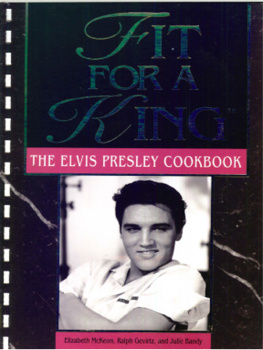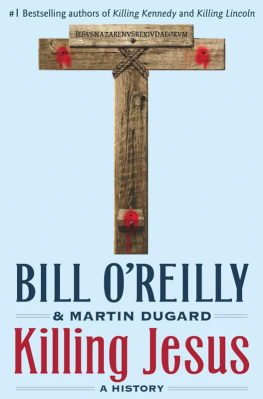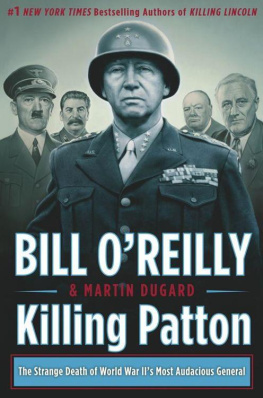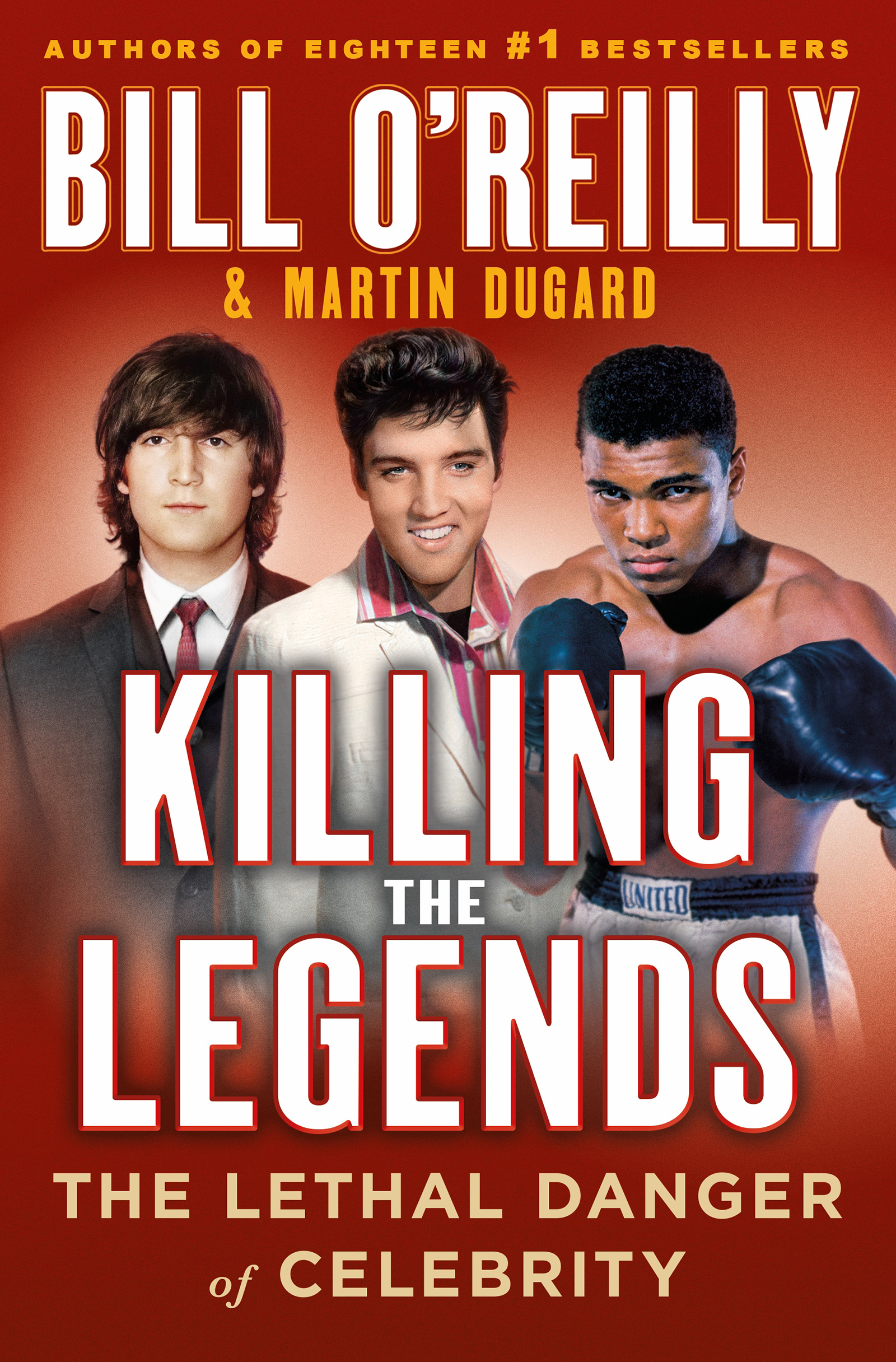Contents
Guide
Pagebreaks of the print version
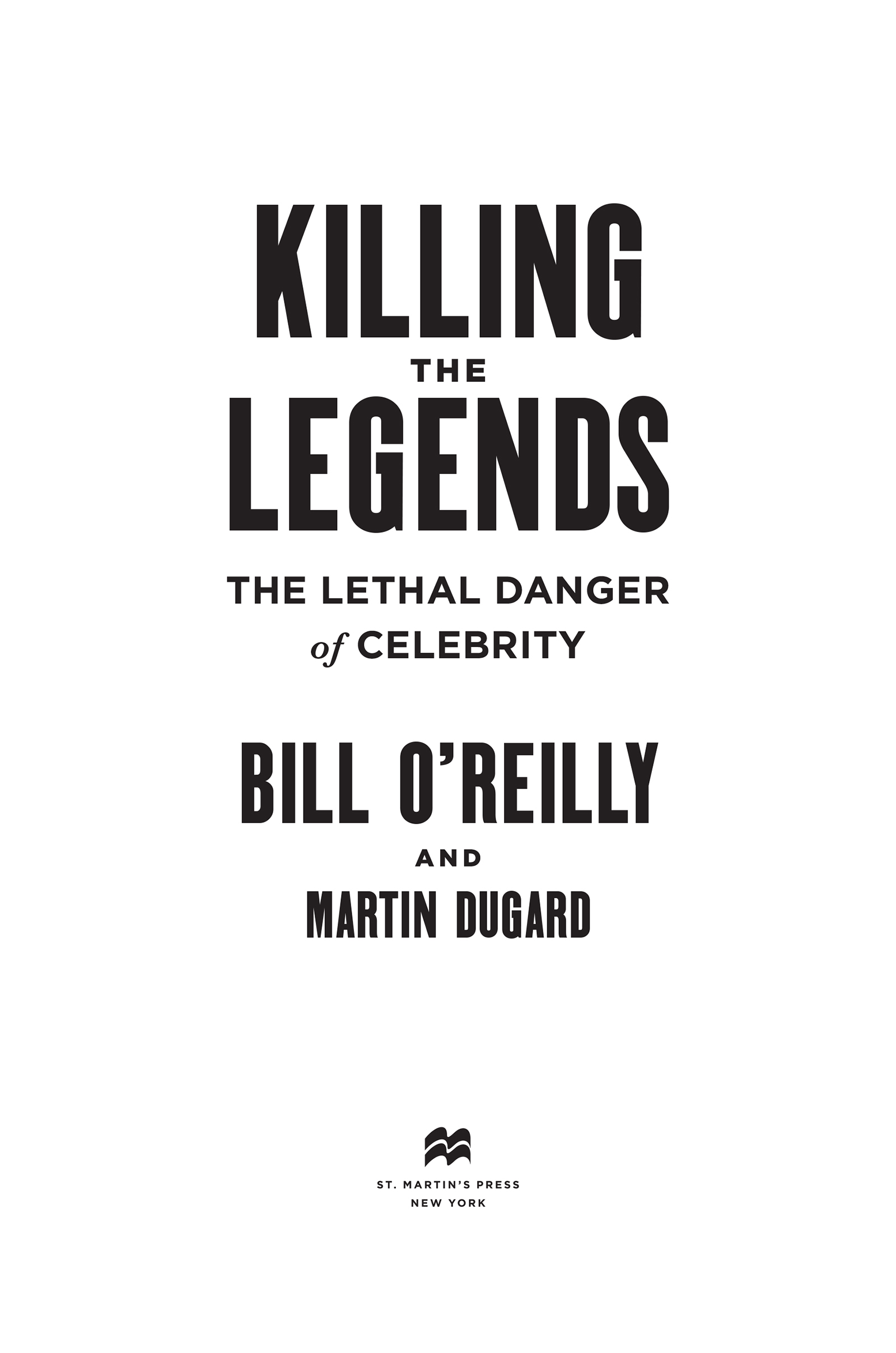
The author and publisher have provided this e-book to you for your personal use only. You may not make this e-book publicly available in any way. Copyright infringement is against the law. If you believe the copy of this e-book you are reading infringes on the authors copyright, please notify the publisher at: us.macmillanusa.com/piracy.
This book is dedicated to all the professionals at the Macmillan publishing group who have helped us make the twelve Killing titles the most successful nonfiction book series in history. Pun intended.
AUGUST 16, 1977
MEMPHIS, TENNESSEE
1:30 P.M.
The King is dead.
Nobody knowsnot yet. Elvis Aaron Presley lies alone on his bathroom floor, his depleted body struck down by years of narcotics and unhealthy living. Death came so suddenly that he could not even call for help or struggle to his feet. Thick red shag carpet muffled his fall from the commode. So, while Presleys girlfriend sleeps peacefully just a few feet away in the master bedroom, she is completely unaware of the corpse on the other side of the bathroom door.
Elvis, as he was known all over the world, was forty-two at the time of his death. He was once widely acclaimed as the King of Rock n Roll. But by this point, the King, as he was still called by legions of fans, was no longer relevant in the music world. Presley had become an oldies act, still performing hits from a decade and a half earlier after being displaced from the Top 40 pop charts by bands like the Beatles and the Rolling Stones. Recently, he was also eclipsed by rising stars like Led Zeppelin and Bruce Springsteen.
Although he still made millions of dollars playing Las Vegas and other concert venues, Elvis Presley was a physical mess. In his early twenties, he was a virile and handsome man, a sex symbol whose hit records and movie roles made him one of the biggest stars on earth. But at the end, that was no more. His slide into debauchery was long and pronounced, and the sycophants who depended on him for money and prestige did nothing to stop his decline. Onstage, Presley, though still charismatic, had become a garish caricature of himself: swollen, obese, and often unable to remember lyrics due to a barbiturate addiction. And while Elvis was still a relatively young man, his drug addiction and gluttony destroyed his overall health and aged his body well beyond its years.
There was a time when the blue-eyed singer was fastidious about his personal appearance, dying his sandy blond hair and eyebrows a deep black to imitate the look of Tony Curtis, his favorite actor. Presley also had his teeth capped and his nose straightened, and he took up karate for exercise. But by the time of his death, that regimen was long gone. In addition to popping amphetamines to maintain his energy during concerts, and sleeping pills to come back down, Elvis gorged on biscuits and gravy, potato cheese soup, and loaves of Italian bread stuffed with pounds of bacon, peanut butter, and grape jelly. Once svelte, the King now weighs almost three hundred pounds as he lies comatose on the bathroom floor.
In recent years, Elvis overdosed twice, yet he continued taking pills, rationalizing that he was not a drug addict because he didnt purchase the drugs from street dealers. Instead, the narcotics were prescribed by his longtime personal physician, Dr. George Nichopoulos.
But Elvis Presley was, indeed, addicted. In the first seven months of 1977, Dr. Nick prescribed more than ten thousand doses of sedatives, amphetamines, and other narcotics to the ailing singer. Truth be told, before his collapse, Elvis Presley was living in an almost constant state of inebriation.
Divorced from his first wife, Priscilla, Presley lived with a tall brunette twenty years his junior, named Ginger Alden. The couple resided in his mansion, Graceland, where he maintained a nocturnal lifestyle. The King purchased the thirteen-acre property for $102,500 ($945,000 in todays dollars) in 1957 and decorated it in garish fashion, particularly the Jungle Room, where he famously shot out a television screen with a revolver because he was bored. For more than two decades, venturing outside during daylight had been a challenge for him. Presleys fame meant he was instantly recognized no matter where he went, so he slept all day and went out only after dark. This led to eccentricitieslike a ten thirty p.m. visit to the dentist and a game of racquetball in his private court at four a.m. At four thirty, he sat at the piano singing gospel music, finally calling it a night at five.
As he did most every day, the King ingested a packet of pills in order to fall asleep. The pills did not work. At seven a.m., he downed another packet. This was in addition to the codeine the dentist had given him the night before.
At eight a.m., Elvis Presley took a third packet of pills, this time a drug known as Valmid, used to treat insomnia.
Im going into the bathroom to read, the singer, still unable to sleep, told Ginger Alden at nine thirty. He grabbed a book off the nightstandThe Scientific Search for the Face of Jesusand walked into the bathroom. He wore gold pajamas.
Dont fall asleep in there, Alden called after him, a subtle reminder that the King had done so in the past. He suffered from chronic constipation brought on by his drug use, and as a result, he spent hours in the bathroom.
I wont, said Presley, uttering his last words.
Ginger Alden, to whom Elvis Presley had proposed but whom he never intended to marry, fell back asleep. She woke at one thirty in the afternoon to find the space beside her in bed empty. Knowing that Elvis needed to catch a seven p.m. private flight to Portland, Maine, for a concert, Alden thought he must be awake somewhere in the house. She phoned her mother, got dressed, and put on makeup. Then, after Elvis still hadnt returned to the bedroom, she went to the bathroom and knocked on the door.
There was no response. Slowly turning the knob, she pushed the door open and screamed. There, head on the floor, posterior in the air, lay an unresponsive Elvis. His gold pajama bottoms were down around his ankles, and his face lay in a pool of vomit. The singers body was cold, and his tongue was clenched between his teeth, nearly bitten in two. Alden peeled back one of the Kings eyelids, only to see a lifeless blue eye framed in blood. Ginger Alden screamed again.
The lifeless body was rushed to Baptist Medical Center in Memphis, where Elvis Presley was pronounced dead shortly after three p.m. Newspaper reporters calling the emergency room to check on Elviss status were instead directed to the morgue.
News traveled fast. At four p.m., Vernon Presley, the singers sixty-one-year-old father, stood on the front steps of Graceland to address a crowd of journalists. He had been a steadfast presence in his boys career and knew firsthand the source of the Kings destruction.
A devastated Vernon was succinct in his remarks: My son is dead.
DECEMBER 8, 1980
NEW YORK CITY
10:48 P.M.
The Walrus has been shot.
John Winston Ono Lennon staggers up the six steps leading into the main security office of the Dakota apartment building. Blood flows from the four .38-caliber hollow-point-bullet holes in his torso: two in the back, two in the shoulder. The projectiles hollow points expanded upon impact, as they are designed to do, instantly shredding Lennons internal organs.


